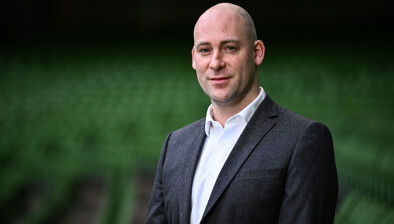Court of Appeal: Full rehearing in personal injuries case after ‘total non-engagement’ by trial judge with the evidence

The Court of Appeal has ordered a full rehearing of a personal injuries case after the court determined that the trial judge had failed to engage with essential aspects of the evidence.
The court held that it was “surprising and unfortunate” that the trial judge failed to recognise that important medical documents had not been formally proved by the defendant.
Delivering judgment in the case, Ms Justice Maire Whelan held that the trial judge ought to have ruled that the medical notes were inadmissible because they had not been proved by the defendant in oral evidence. In fact, the trial judge gave a judgment whilst “wholly disregarding” the rules of evidence, the court held.
Background
The plaintiff claimed to have been injured when he tripped and fell on a footpath which was in a poor state of repair. He issued personal injuries proceedings against Carlow County Council, claiming to have suffered a bad wound on his head. It was said that this accident happened on 2 March 2013.
Prior to the hearing, the defendant had obtained medical notes of the plaintiff’s attendance at a CareDoc clinic on 3 March 2013. The doctor who attended to the plaintiff was Dr Carole McInerney. The documents contained shorthand notes which suggested that the injuries were older than claimed by the plaintiff and that they were not consistent with a fall.
Schedules of witnesses were provided by each party in accordance with Order 39 RSC, but the defendant did not list any witness who could prove the medical notes. At the hearing, counsel for the defendant sought to cross-examine the plaintiff based on the notes.
A “strenuous objection” was made by the plaintiff’s counsel, who insisted that the defendant would have to prove the document if it was to be used in cross-examination. The medical notes were not admitted by the plaintiff at any stage in the case. The plaintiff relied on Leopardstown Club Limited v. Templeville Developments Limited [2010] IEHC 152 and The People (Director of Public Prosecutions) v. Diver [2005] IESC 57 to ground the objection.
After some debate, the defendant’s counsel accepted that witnesses would need to be called to prove the documents (although it was also claimed that documents were frequently used in civil litigation without formal proof). The court granted a subpoena for Dr McInerney to appear later in the week.
The case continued thereafter, with the plaintiff being cross-examined on the basis that he had made a fraudulent claim. It was suggested that he had been injured in a fight or fallen when drunk. It was also put to him that the injury was older than he had claimed. These allegations were refuted by the plaintiff.
Further, the plaintiff’s medical expert gave evidence that the injury was consistent with a fall that went untreated for two days. It was said that wounds heal more quickly on the face and that the expert could not comment on the views expressed in the CareDoc notes. The defendant conceded that the footpath was in a poor state of repair.
No evidence was proffered by the defendant, except for Dr McInerney. However, it transpired that the defendant had not located Dr McInerney by the end of the week and made an adjournment application so that she could be found. The trial judge proposed to consider the CareDoc note, stating that he appreciated that Dr McInerney had not been cross-examined yet.
Subsequently, Mr Justice Michael Twomey gave an ex tempore judgment in which he dismissed the plaintiff’s claim with costs to the defendant. Notably, Mr Justice Twomey did not mention the CareDoc notes or the adjournment application at all. Instead, the trial judge stated that he did not find the plaintiff’s recollection of events to be convincing, stating that the plaintiff had failed to take the obvious route on the footpath and avoid the hole in the ground.
The court also cited Byrne v. Ardenheath [2017] IECA 293 and said that the plaintiff had failed to exercise common sense. The plaintiff appealed the decision.
Court of Appeal
The court began by examining the law in relation to the so-called “Phipson Rule” of evidence. The court cited Phonographic Performance (Ireland) Ltd. v. Cody [1998] 4 I.R. 504, which outlined that “everything going to the gist of the action should be proved by oral evidence”. It was noted that this was true in both civil and criminal proceedings.
The court stated that the trial judge had disregarded the plaintiff’s expert medical evidence about injuries suffered in trips/falls despite the fact that no contrary expert evidence was adduced by the defendant.
Considering the Leopardstown Club case, it was held that a central plank of the defendant’s case was the CareDoc notes, which were used to allege that the claim was fraudulent. The court said that it was implicit in the adjournment application by the defendant that the CareDoc notes could not be relied on without oral evidence.
Further, the court stated that Mr Justice Twomey should have clearly addressed the issue as to admissibility in his judgment. There were significant points of difference between the parties and therefore basic fairness required the judge to indicate the approach he was taking to the CareDoc evidence.
As such, the court held that the high threshold under Leopardstown Club of “clear non-engagement” with essential aspects of evidence had been reached. This was particularly so since allegations of fraud were made.
The court said that the trial judge had “elected to ignore” the CareDoc evidence rather than identify what weight, if any, attached to it. However, at the same time, the judge was “echoing language found within it” to dismiss the claim. The court stated: “The complete failure to engage with the issue of the CareDoc notes results in the substantial absence of any reasoned conclusion as to why the case on the facts as advanced by the [plaintiff] was preferred.”
As such, the trial judge had fallen into “significant and material error” which visited a “patent unfairness” on the plaintiff. The court said that the trial judge had delivered the judgment with “undue expedition” and did not provide adequate reasoning for the decision (Doyle v. Banville [2012] IESC 25).
It was noted that neither party had sought the course of action chosen by the judge. The defendant had applied for an adjournment, while the plaintiff had made a “costs thrown away” application that was also not mentioned by the judge. The judge had “simply ignored” clear authorities on the Phipson rule and failed to follow the Diver precedent, the court said.
Finally, it was also held that the trial judge had misapplied Byrne v. Ardenheath, which was distinguishable in several ways. For example, the present case contained allegations of fraud which raised different considerations than those considered in Byrne v. Ardenheath.
Conclusion
The court concluded that the conduct of the judge had led to an unfair trial and that it was appropriate to order a full rehearing of the action. The court awarded costs of the High Court hearing and the appeal to the plaintiff, subject to any further submissions.










